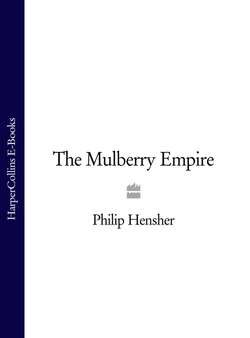Читать книгу The Mulberry Empire - Philip Hensher - Страница 7
ONE
ОглавлениеTHE AMIR DOST MOHAMMED KHAN had fifty-four sons. And his favourite among these sons was Akbar. One day Dost Mohammed feared that he was ill, and close to dying, and he called his fifty-four sons to him. They came from the far peaceful corners of the kingdom of the Amir Dost Mohammed Khan to the great city he had caused to be built, and as they rode through the country, they were not troubled or threatened. The wisdom and strength of their father made straight roads for them, and the justice he had wrought smoothed their passage.
One after another, his four-and-a-half dozen sons came to the great city of Kabul, and the people of Kabul, seeing that the Amir Dost Mohammed Khan had summoned his sons, turned their dust-filled eyes to the dust in grief. One after another, his sons rode through the wide streets, which were crowded but silent in sorrow. They came to the great palace, and came to the bedchamber of their father, the Amir Dost Mohammed Khan. And to each he said with kindness, as he came in, that his speed had been that of one driven by the Wind of a Hundred and Twenty Days. But the great Amir lied, for each had been driven to him by love.
At the end of three days, the Amir Dost Mohammed Khan lay in his bed, and looked around at the silent crowd of his sons, and bid them count themselves. The living counted themselves, and then the dead sons, and then the sons to come, who were not yet born, whom Dost Mohammed loved best, said their names, but only to Dost Mohammed in the dark shade raised over his head. He counted them, and there were fifty-three. It seemed to Dost Mohammed that one was missing.
‘Great King,’ the second youngest of the sons said. ‘Akbar is not yet here. But he must be fast approaching.’ Dost Mohammed nodded, and the rough cloth of his bed cover seemed to whisper a denial. ‘That is not so,’ the youngest of the sons said. ‘Akbar my brother has sent a message that he will not come. He has sent a message to the great King my father that he is occupied, and may not turn away from the borders of the country, to mop my father’s face and hold my father’s head.’ And the brothers looked away in shame that their father should hear the truth.
But Dost Mohammed nodded, and was pleased by what the youngest of the brothers had said. ‘He has done right,’ he said, just that. He raised his head, and looked at the sons who were there, and the sons who were dead, and the sons who were not yet born, and the single son who had better things to do, and the Amir was pleased. And the sons – Afzal, and Azam, and Shams-i Jahan, and Ghulam Haidar, and Sher Ali, and Amin, and Sharif, and Akram and Wali and Faiz and Hawa and Hajira and Ahmad and Zaman and Umar and Ummat al-Mustafa and Bibi Zumurrud and Salih and Muhsin and Nur Jahan and Hasan and Husein and Wafa and Aslam and Qasim and Sher and Nek and Hashim and Sadiq and Shuaib and Rahim and Azim and Sadiq and Sarw-i Jahan and Yusuf and Azim and Habibullah and Mamlakat and Sharaf Sultan and Durr Jan and Sahib Sultan and Bibi Saira and Aisha and Bilqis and Sadiq and Rahim and Saifullah Khan Wakil and Agha and Fatima and Zainab and Banu and Mulk-i Jahan and Badr-i Jahan, youngest of the brothers (for it is written that the women who are born to a great Emperor may be considered sons, too) – the sons of the great King looked at him and saw him revive, and start to live again as he heard that everything was well with his kingdom. Glory be on the names of the sons of the Amir Dost Mohammed Khan, greatest of the Afghans, wisest of his people!
In time, Akbar found that his strength had secured his father’s kingdom from his enemies, and, leaving his people with the instruction to be awake and vigilant, hastened to his father’s house. But he found the Dost well, and recovered, and merry, and full of love for the greatest of his sons, and Akbar embraced his father. ‘My son,’ the Amir Dost Mohammed Khan said. ‘You did right not to come to my call, but to remain at the call of the kingdom that will be yours. You, alone among my sons, are truly my son.’ And after that embrace, the Amir Dost Mohammed Khan lived in peace and plenty for years to come, in the knowledge of his wisdom and the knowledge of the wisdom of his son.
